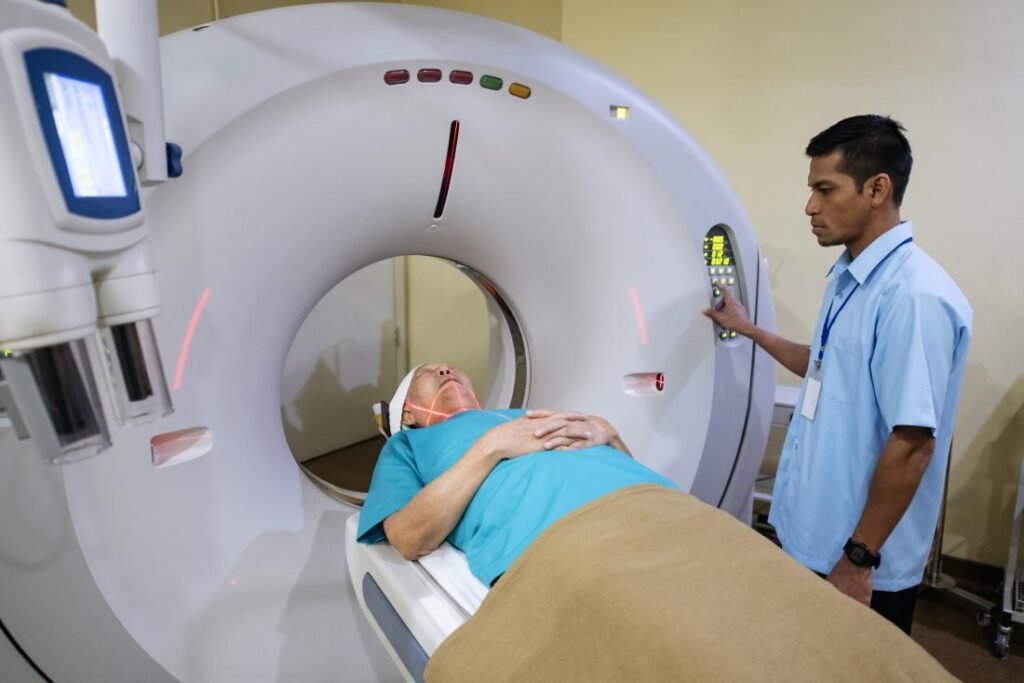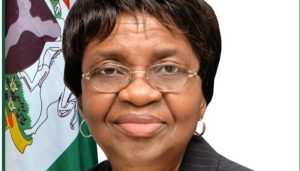
By David Akinmola
The Nigerian Association of Resident Doctors (NARD) has raised concerns over the accessibility of life-saving diagnostic equipment in the country, revealing that only 42 per cent of computed tomography (CT) scanners are housed in public hospitals, while the majority are owned and operated by private institutions.
This alarming disparity, according to the association, highlights a growing inequality in access to critical diagnostic services, especially for low-income and rural patients who rely heavily on government-funded healthcare facilities.
Speaking on the issue, NARD President, Dr. Dele Abdullahi, said the limited availability of CT scanners in public hospitals severely undermines the country’s ability to diagnose and treat life-threatening conditions such as stroke, internal bleeding, and traumatic injuries in a timely manner.
“Our audit shows that less than half of CT scanners in the country are available in public hospitals,” he said. “This is troubling, considering that the majority of Nigerians depend on these institutions for healthcare.”
CT scanners are vital imaging tools that provide detailed internal images of the human body and are indispensable in emergency and critical care settings. Yet, Dr. Abdullahi noted that even the few public hospitals that do have scanners often face challenges of inadequate maintenance, erratic power supply, or outdated equipment.
“The unfortunate reality is that a CT scan, which should be a routine diagnostic step, becomes an uphill task for many patients who can’t afford private hospital fees,” he added. “Some patients are referred from government hospitals to private centres that charge exorbitantly, thereby delaying diagnosis and treatment or worse, denying it entirely.”
This situation, experts say, not only threatens health outcomes but also undermines the goals of universal health coverage, which aims to ensure that all citizens have access to quality healthcare without financial hardship.
Health analysts also warn that the heavy reliance on the private sector for such critical equipment shifts the burden of cost to patients, especially in a country where over 60 percent of the population live below the poverty line and less than 10 percent are covered by health insurance.
Dr. Abdullahi urged the Federal Government to prioritise the procurement and distribution of CT scanners and other diagnostic tools to public health institutions, especially at the tertiary and secondary care levels. He also called for the training of technical staff and biomedical engineers to ensure the functionality and sustainability of these machines.
“The government must treat diagnostic infrastructure as essential, not optional. Without diagnostics, there can be no effective treatment,” he stated.
The doctors also called for improved budgeting for the healthcare sector and full implementation of the Basic Healthcare Provision Fund, which allocates a percentage of national health funding for primary and secondary healthcare improvements across the country.
Several medical practitioners and hospital administrators echoed NARD’s concerns. A radiologist at a federal teaching hospital in the South-West region, who requested anonymity, confirmed that their lone CT scanner often breaks down for weeks, forcing them to refer patients to private clinics.
“Some patients have had to travel over 100 kilometers just to get a scan done, and that’s assuming they can even afford it,” she said. “This isn’t just inconvenient; it’s dangerous.”
As Nigeria continues to grapple with systemic healthcare challenges, the widening gap between public and private diagnostic capacity underscores the urgent need for investment in healthcare infrastructure not only to improve access but to save lives.
In a country of over 200 million people, experts insist that equitable access to diagnostic equipment like CT scanners should not be a luxury but a public health priority.








